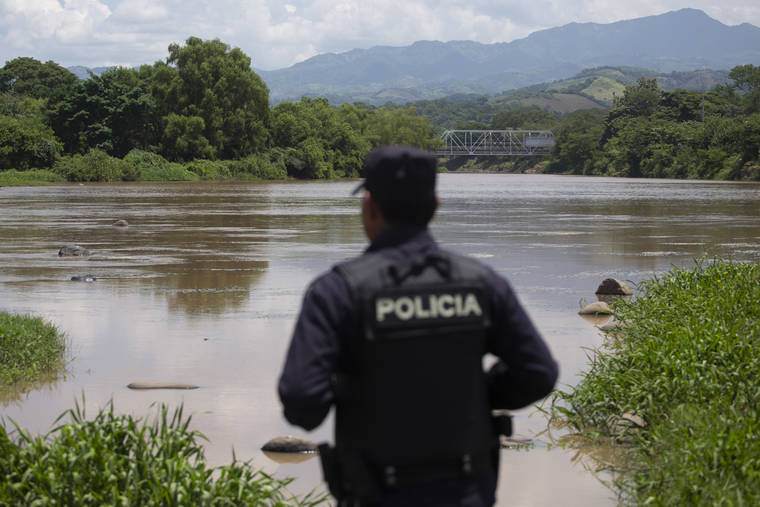LA HACHADURA, El Salvador — El Salvador is deploying 800 police and soldiers to patrol blind spots along its borders where migrant smugglers and transnational criminals operate.
Justice and Public Safety Minister Rogelio Rivas said Thursday that the contingent will be joined by about 300 immigration agents. It will target criminal structures that traffic people, in addition to violent groups who force Salvadorans to flee the country.
“We are determined to improve public safety, and that’s why we’ve come here to launch our new system of border patrols,” Rivas said. “This will be a strategic arm that we will wield to combat transnational crime.”
The patrols made up of three immigration agents and two police officers will set up control points along El Salvador’s borders and work in the country’s airports.
The deployment began in La Hachadura along the country’s border with Guatemala, 78 miles west (126 kilometers) of the capital, and is part of an agreement between the Salvadoran government and acting U.S. Homeland Security Secretary Kevin McAleenan to slow the flow of migrants trying to reach the United States.
Rivas said that since he took his position June 1, authorities have captured 159 migrant smugglers. That’s the sort of action Washington has been pressing Central American governments for.
Cesar Ríos, of the non-governmental group Salvadoran Immigration Institute, said that Salvadorans carrying their documents will continue to be allowed to leave the country without restrictions.
However, he said, the presence of border patrols “could have consequences because the families that are fleeing don’t go with a smuggler, they go protecting their lives and they’re going to run into a security at the borders.”
A regional agreement known as CA-4, signed in 2006 by Guatemala, El Salvador, Honduras and Nicaragua, allows citizens of those countries to move between them without restrictions and only carrying their national identity documents. But passports are required for children to protect against human trafficking.
Immigrant advocacy groups have estimated that 300 Salvadorans were leaving the country each day, but Ríos said measures by the U.S. and Mexico to make the trek more difficult had led to fewer recently.


